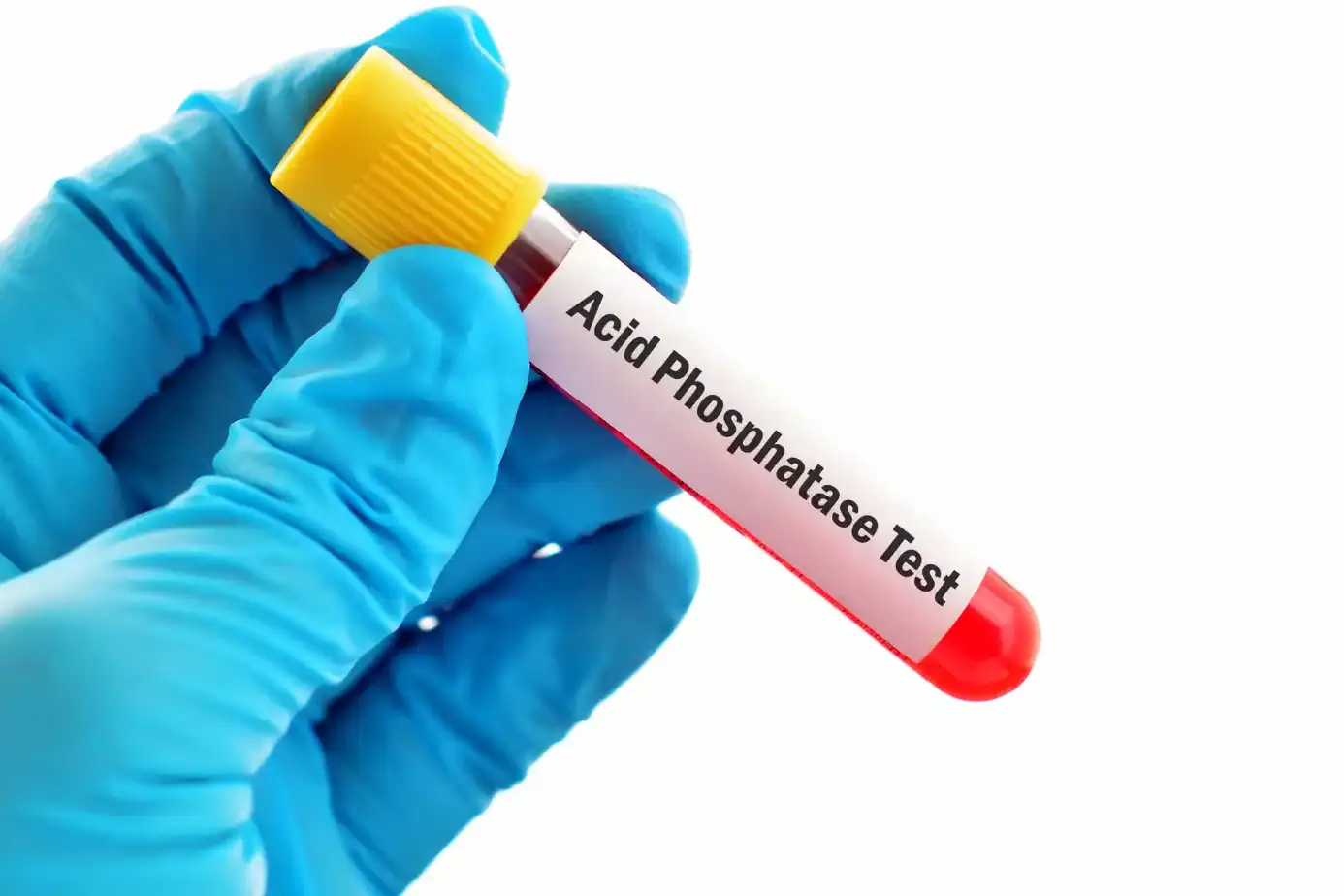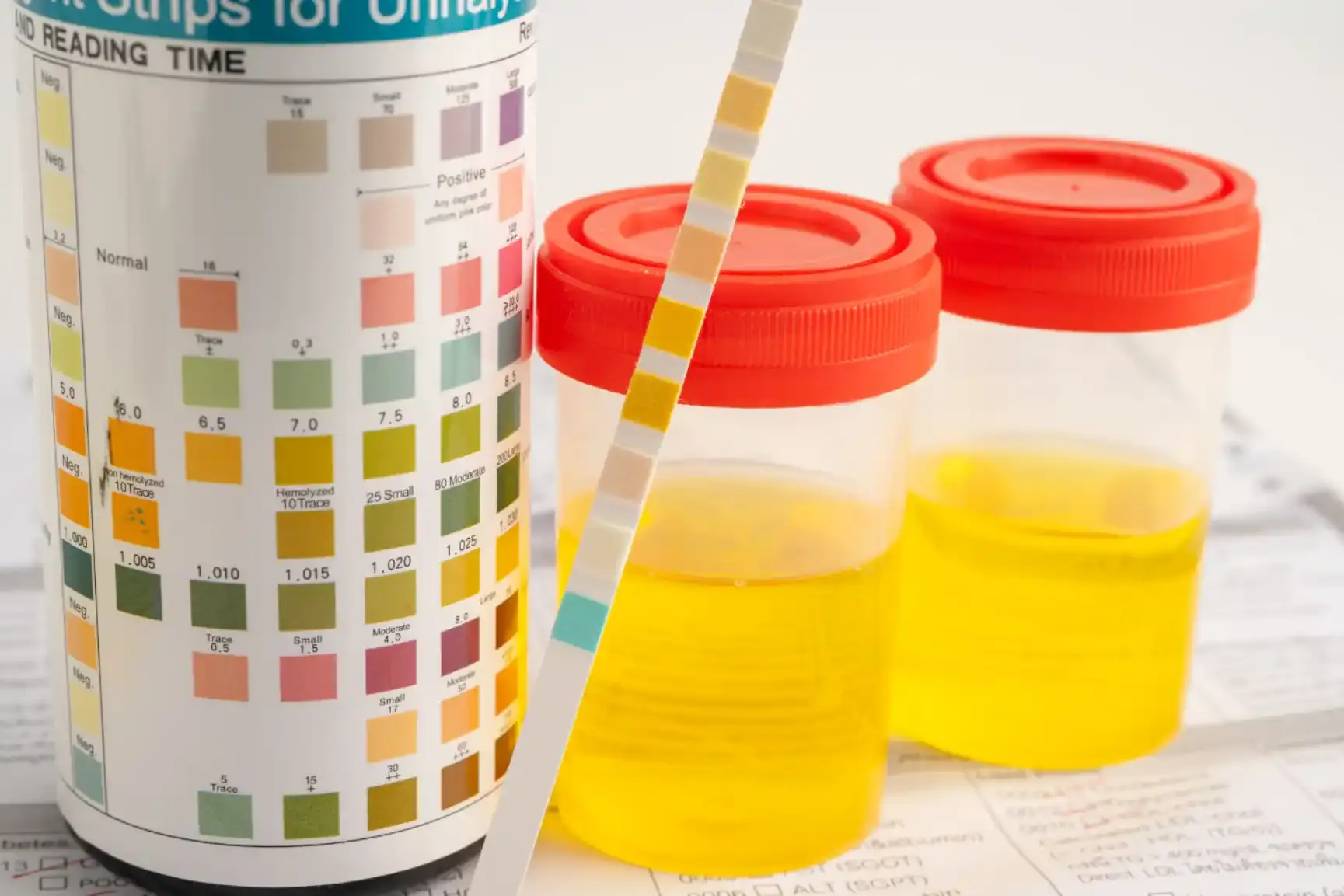Keeping your liver healthy is key to your overall well-being. A liver profile test, also known as a liver function test (LFT), provides valuable insights into the condition of your liver. This comprehensive blood test checks the levels of enzymes, proteins, and other substances that indicate how well your liver is functioning.
Understanding what your liver test results mean is crucial. It helps you and your healthcare provider identify any potential liver issues early on, enabling timely intervention and management. By familiarizing yourself with the normal ranges for liver enzymes, proteins, and other markers, you can take proactive steps to maintain a healthy liver and address any concerns that may arise.
Whether you're concerned about elevated liver enzymes, liver disease screening, or monitoring your overall liver health, this comprehensive guide will help you decipher your liver test results and empower you to take charge of your well-being.
 Knowing what a liver profile test checks helps you understand your liver health. It can show if there are any health issues that need a doctor's help.
Knowing what a liver profile test checks helps you understand your liver health. It can show if there are any health issues that need a doctor's help.



Table of Contents
ToggleIntroduction to Liver Profile Tests
Your liver is key to your health, doing over 500 important jobs. Your doctor might suggest a liver profile test to check it. This blood test looks at substances made by your liver, giving clues about its health.What are Liver Profile Tests?
A liver profile test, or LFT, is a set of blood tests for your liver. It checks levels of enzymes, proteins, and other signs of liver health. These tests spot liver issues early, helping you get the right treatment.Importance of Understanding Liver Health
Your liver does many important things, like breaking down food and removing toxins. By getting liver profile tests, you can keep your liver working well. This helps you make better choices about what you eat and how you live. Knowing your liver test results helps you and your doctor catch problems early. This means you can take action fast to keep your liver healthy. Taking care of your liver helps you stay healthy and feel great.Components of a Liver Profile Test
A liver profile test looks at several important parts to check your liver's health. It checks liver enzymes, proteins, and bilirubin levels.Enzymes Measured
The test checks liver enzymes like ALT, AST, ALP, and GGT. These enzymes show if the liver is damaged or not working right. If these levels are too high, it means there might be liver problems.Proteins Evaluated
The test also looks at liver proteins like albumin and total protein. These proteins help the liver do its job. Checking their levels helps see if the liver is working well.Bilirubin Levels
Bilirubin comes from breaking down red blood cells. The liver gets rid of it. High levels can mean liver disease or bile duct blockages. Knowing what a liver profile test checks helps you understand your liver health. It can show if there are any health issues that need a doctor's help.
Knowing what a liver profile test checks helps you understand your liver health. It can show if there are any health issues that need a doctor's help.
Liver Profile Test
The liver profile test checks how well your liver works. It looks at how your liver filters toxins, breaks down nutrients, and helps with blood clotting.Purpose of the Liver Profile Test
Doctors order this test for many reasons. They want to see if your liver is damaged or diseased. They also check if your liver is working right when you're on certain medicines. They might do it to find out why you have liver symptoms. Or to see if your liver is getting better or worse.When is it Recommended?
This test is often part of regular check-ups. It's especially important if you've had liver problems before. Or if you're taking medicines that can harm your liver. If you have symptoms like abdominal pain, fatigue, nausea, or jaundice, you might need this test. It's also key for people with risk factors for liver disease. This includes drinking a lot of alcohol or being around toxins.
Restore Your Gut Naturally7 Days, 7 Simple Meals!
Reset your gut in 7 days with 7 simple meals! 🌿💚 Improve digestion, reduce bloating, and feel amazing—one meal at a time!
Interpreting Liver Profile Test Results
It's important to understand your liver test results. Each part of the test has its own normal range. This helps figure out if your results are okay. If they're not, it might mean you have a liver problem or another health issue.Normal Range Values
The normal values for liver tests can change based on age, gender, and how the test is done. Here are some general guidelines:- Alanine aminotransferase (ALT): About 7-56 units/liter of serum
- Aspartate aminotransferase (AST): Usually 5-40 units/liter of serum
- Alkaline phosphatase (ALP): The range can vary but is often 44-147 units/liter
- Total protein: 6.0-8.3 g/dL
- Albumin: 3.5-5.0 g/dL
- Total bilirubin: 0.1-1.2 mg/dL
Patterns of Abnormal Results
If your test results are not normal, look for patterns. The way certain enzymes or proteins are raised can hint at the cause. For example:- Hepatocellular pattern: A big jump in ALT and AST might mean liver damage. This could be from viruses, too much alcohol, or certain medicines.
- Cholestatic pattern: High ALP and GGT levels suggest problems with bile ducts or gallbladders. This could be due to gallstones or blockages.
- Mixed injury pattern: This is when both liver damage and bile duct issues are seen. It's a mix of high transaminases and cholestatic enzymes.
Liver Diseases and Conditions
Your liver is very important. It does many key things for your body. But, it can get sick and not work right. One big problem is hepatitis. This is when the liver gets inflamed. It can happen from viruses, like hepatitis A, B, and C. Or from drinking too much alcohol. Cirrhosis is another serious issue. It makes the liver scar and not work well. This is a big problem. Fatty liver disease is when fat builds up in the liver. It can happen if you're overweight, have diabetes, or drink a lot of alcohol. Liver cancer is also a concern. It's important to watch for it. Knowing about these liver problems helps you and your doctor. They can understand your test results better. Regular check-ups are key to keeping your liver healthy.Risk Factors and Causes of Elevated Liver Enzymes
Your liver is key to your health. It's important to watch your liver enzymes. If they're high, knowing why is crucial. Alcohol and some medicines are common causes.Alcohol Consumption
Drinking too much alcohol can harm your liver. Your liver tries to break down alcohol. But too much can damage liver cells and raise liver enzyme levels. This can lead to serious problems like alcoholic hepatitis and cirrhosis. It's a big risk.Medications and Liver Damage
Some medicines can also raise liver enzymes. This includes antibiotics, cholesterol drugs, painkillers, and herbal supplements. Always talk to your doctor about your medicines. If you're worried about your liver, talk to your doctor. They can find out why your liver enzymes are high. They'll help you know what to do next.
lft test normal range
The lft test, or liver function test, is key to knowing your liver health. It checks enzymes and proteins made by your liver. This gives insights into how well your liver is working. Let's look at what the normal ranges for these tests are. These ranges help us understand your health.- Alanine transaminase (ALT) Test: 7-55 U/L
- Aspartate aminotransferase (AST) Test: 8-48 U/L
- Alkaline Phosphatase (ALP) Test: 45-115 U/L
- Albumin Test: 3.4-5.4 g/dL
- Total Bilirubin Test: 0.1-1.2 mg/dL
- International Normalized Ratio (INR): 0.8 to 1.1
- Alpha-fetoprotein Test: Less than 10 ng/mL for adults
Preparing for a Liver Profile Test
Getting ready for a liver profile test is key for accurate results. To prepare, follow a few important steps.Fasting Requirements
Remember the fasting rule. You need to fast for 10-12 hours before the test. This means no food, drinks (except water), and some meds. It gives a clear view of your liver's health.Medication and Supplement Disclosure
Always tell your doctor about all meds, supplements, or herbal remedies you take. Some can change test results, so it's important to share this info.Avoiding Alcohol
Avoid alcohol for at least 72 hours before the test. Alcohol can make liver enzymes seem higher, which can distort results. By following these simple steps, you help ensure your liver function test shows your liver health accurately. This lets your doctor make the best decisions for your care.
Follow-up Testing and Monitoring
If your liver test shows any problems, your doctor might suggest more tests. These steps help find the cause of liver issues. They also help create a good treatment plan.Additional Diagnostic Tests
Your doctor might use imaging studies like ultrasound, CT scan, or MRI. These help see your liver's structure and function. A liver biopsy might also be done to check liver tissue. Blood tests can also give important information about your liver. They help find the cause of any liver test problems. These tests help your doctor understand your liver better. They can find any issues that need more attention or treatment.Ongoing Monitoring
If you have a liver condition or are at risk, your doctor will suggest regular checks. This includes liver tests and imaging studies as needed. Keeping an eye on your liver is key for early detection and treatment. This approach helps manage liver problems better. It keeps your liver healthy and improves your overall health. It's important to stay informed about your liver health. Work with your doctor to make sure you get the right tests and monitoring.Conclusion
Keeping your liver health in top shape is important for feeling good. Simple changes in your daily life can help your liver work better. Drinking less, eating right, exercising, and avoiding bad foods are good steps. Knowing your liver function test results and working with your doctor is key. It helps you take care of your liver and catch problems early. Taking care of your liver is essential for your health and happiness. Your liver is crucial for your body's health. So, making it a priority is important. With the right choices and regular checks, you can keep your liver healthy. This leads to a happier, healthier you.FAQ
What are liver profile tests?
Liver profile tests check your liver's health. They measure enzymes and proteins made by the liver. This helps see if your liver is working well.
Why are liver profile tests important?
These tests are key to knowing your liver's health. They can spot liver damage early. This lets you and your doctor keep your liver healthy.
What does a liver profile test check?
It checks liver enzymes like ALT and AST. It also looks at proteins and bilirubin levels. These show how well your liver is working.
When is a liver profile test recommended?
Doctors might suggest these tests during check-ups. They're also used if you have liver symptoms or take liver-affecting meds. Or if you have a liver condition.
How do I interpret my liver profile test results?
Your results are compared to normal ranges. If they're off, it might mean a liver problem. Your doctor can explain what your results mean.
What are some common liver diseases and conditions?
Common issues include hepatitis, cirrhosis, and fatty liver disease. Knowing about these can help you and your doctor understand your test results.
What can cause elevated liver enzymes?
High liver enzymes can come from drinking too much alcohol or certain meds. They can also be signs of liver diseases. Talk to your doctor about any high results.
What are the normal ranges for common liver function tests?
Normal ranges are:
- ALT: 7-56 u/l
- AST: 10-40 u/l
- ALP: 44-147 u/l
- Albumin: 3.5-5.5 g/dL
- Bilirubin: Up to 1.2 mg/dL
- INR: 0.8 to 1.1
- Alpha-fetoprotein: Less than 10 ng/mL for adults
Ranges can change based on the lab and other factors.
How can I prepare for a liver profile test?
To get accurate results, fast for 10-12 hours before. Avoid alcohol for 72 hours. Tell your doctor about any meds or supplements you take.
What happens if my liver profile test shows abnormal results?
If your test shows something off, your doctor might do more tests. This could include imaging or a liver biopsy. Keeping an eye on your liver health is very important.
Source Links
- High Liver Enzymes Causes: What They Mean And When To See A Doctor
- Elevated Liver Enzymes Causes
- Liver Function Tests: Types, Purpose, normal ranges, and Results | Max Hospital
- Liver function tests - Mayo Clinic
- Liver Function Tests - StatPearls
- Liver Blood Tests: ast normal range, Best Test Results, Function
Table of Contents
ToggleAbout The Author

Medically reviewed by Dr. Nivedita Pandey, MD, DM (Gastroenterology)
Senior Gastroenterologist & Hepatologist
Dr. Nivedita Pandey is a U.S.-trained gastroenterologist and hepatologist with extensive experience in diagnosing and treating liver diseases and gastrointestinal disorders. She specializes in liver enzyme abnormalities, fatty liver disease, hepatitis, cirrhosis, and digestive health.
All content is reviewed for medical accuracy and aligned with current clinical guidelines.
About Author | Instagram | Linkedin





